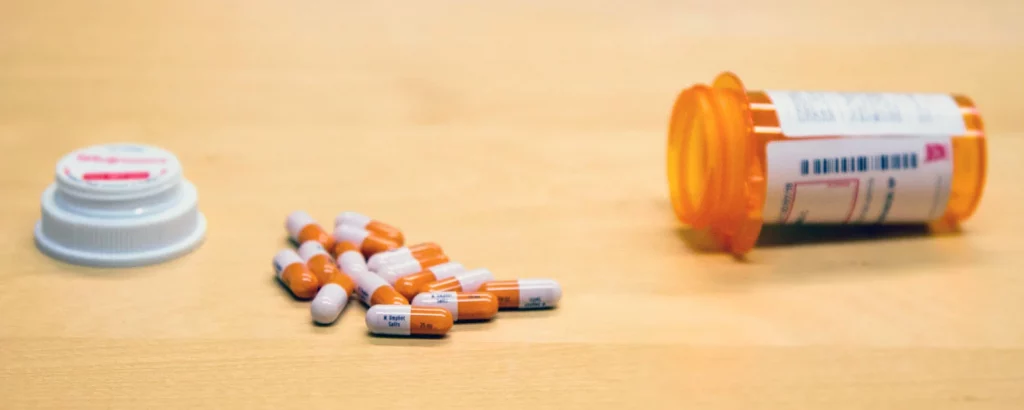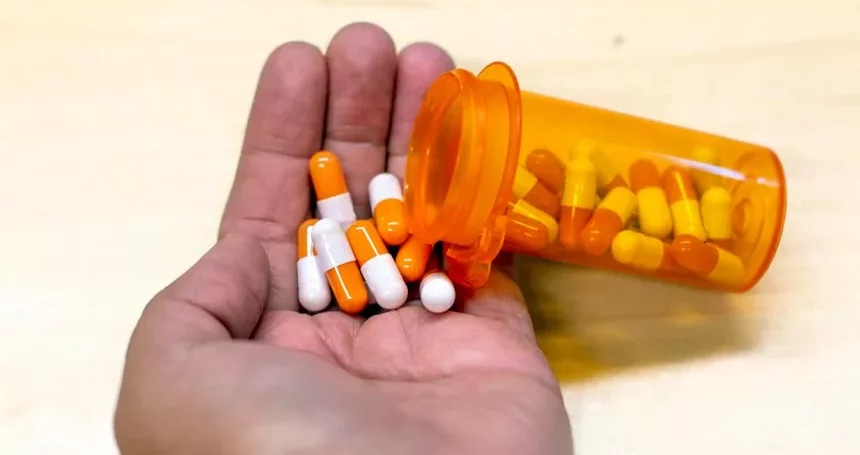What Is Adderall?
Table of Contents
Adderall is a stimulant medication made from a combination of dextroamphetamine and amphetamine. It is classified as a Schedule II Controlled Substance by the Drug Enforcement Administration (DEA).
This prescription amphetamine is used as a treatment to help individuals struggling with attention deficit hyperactivity disorder (ADHD) better manage their experience. ADHD is a mental disorder that is characterized by difficulty managing impulses, attention, and sitting still or quiet. When dependence on the drug occurs, Adderall addiction treatment can be the needed remedy.
Find out more about Adderall, its uses and addictive potential, as well as treatment options, with our comprehensive guide to the topic!
ADHD is often diagnosed in children between ages 3-7 but can still be diagnosed at an older age. There are some young adults living undiagnosed that later discover their disorder and receive a prescription to manage their experience.
The effects of Adderall as a stimulant medication help provide individuals with ADHD with the support necessary to properly manage their struggles. Without it, they are left to regulate these struggles on their own.
Is Adderall Addictive?
Yes, Adderall is an addictive substance. Adderall is one of the most commonly prescribed drugs in treatment for ADHD however, it is used illicitly in individuals both with and without ADHD. This misuse and abuse of Adderall can quickly lead to addiction.
Adderall binds to the neurotransmitters dopamine and norepinephrine within the brain. Dopamine, also known as the feel-good chemical, is responsible for satisfaction and motivation in an individual.
Norepinephrine, also known as noradrenaline, is responsible for increasing blood flow and elevating levels of energy. Due to Adderall’s direct effects on these two neurotransmitters, the behavior of taking this substance, especially against prescribed guidelines, is reinforced.
What Is Adderall Abuse And Misuse?
Drug abuse or substance abuse can be seen as using illegal substances or adjusting the dosage of prescription or over-the-counter medication. It can also be seen as combining other drugs together without advice from an individual’s treatment provider.
The positive outlook on Adderall use in the media pushes individuals towards misusing and abusing this drug. The increased levels of energy and motivation that come from Adderall became the focus of what this drug entails.
The view surrounding Adderall believes it to make an individual smarter or improve mental performance which can be seen in students trying to improve their grades or adults trying to improve their memory.
While some of the effects of Adderall can improve cognition and focus, lacking a full understanding of how it works can lead to unwanted side effects, Adderall abuse, Adderall addiction, and stimulant addiction.
The limited attention span of someone with ADHD also affects their working memory. In their daily processes, they can be quick to forget important things like forgetting to eat, losing track of time, or losing track of personal items.
This does unfortunately include actions such as taking medication. Medication is typically taken around a routine time and schedule, usually daily, which can lead to blurred memory.
In this repetitive action, it can be difficult for an individual with ADHD to properly process whether they have or haven’t taken their medication, despite having just taken it.
Accidental Misuse of Adderall
This can lead to the misuse of Adderall. Not remembering having taken the Adderall and accidentally doubling the dosage can be dangerous for the individual. If an individual is unsure if they took their dose, they can skip that dosage and take their next scheduled dose.
With Adderall prescriptions, an individual does not need to catch up on this dose and take more if some were missed. The effects of a doubled dose can lead to unwanted consequences or even life-threatening situations.
Individuals with ADHD typically have family members with similar mental conditions. Despite similarities in these conditions, it is important for these individuals to not share their medication with their family members or loved ones.
This misuse of Adderall can bring negative consequences to their loved ones. Sharing medication can worsen rather than help the conditions their family members may be experiencing.
One person’s dose of medication may be too high for another individual to properly handle. Taking in too much of a substance so suddenly can bring harm to the body and mind of that individual.
Not only that, but the sudden misuse of Adderall can lead to an addiction. Improper, nonmedical use of the drug can lead an individual to begin drug-seeking behaviors in search of their possible euphoric effect.
What Does An Adderall Addiction Look Like?
Addiction is a disease in the brain that inhibits negative and dangerous drug-seeking behaviors. This disease can cause an individual to take on unwanted or undesirable consequences in order to continue drug use.
It is important to know there is a difference between an Adderall dependence and an Adderall addiction. Adderall can be a detrimental medication that allows for suffering individuals to properly function and manage their struggles.
Suddenly removing Adderall from an individual’s body can put their health at risk. This risk increases with prolonged use and so when stopping Adderall usage, it is imperative for an individual to contact their provider before adjusting their prescription.
An individual addicted to Adderall is more likely to be misusing and abusing Adderall. This can be seen as adjusting the method of ingestion such as crushing a tablet and injecting or snorting the medication.
Being addicted to Adderall, an individual may continue to seek a stronger, more potent, and immediate effect from the prescription drug. This can be more harmful to the body and allow for more health issues to arise in an individual.
Intravenous use of Adderall puts its user at risk of skin infections and unwanted diseases like hepatitis B or HIV. Snorting the drug can also cause damage to the nasal cavity and disrupt proper nasal function.
Adderall Side Effects
Prescription stimulants are fairly similar in terms of their side effects. Stimulants are used to elevate the levels of dopamine and norepinephrine to help provide the body with proper energy, attention, and focus.
These effects are some of the reasons why Adderall and stimulant medications have the potential for drug abuse. For individuals without ADHD, this effect can produce a euphoric and energetic feeling.
It is important to know that Adderall use can aggravate pre-existing mental conditions such as anxiety or depression. During adderall use, some of the effects include:
- Wakefulness
- Increased blood pressure and heart rate
- Heart palpitations
- Aggression
- Decreased appetite
Adderall affects the amounts of energy, alertness, and attention within the body as well as changes the emotional well-being of an individual. Some of the side effects an individual can experience during or after Adderall use can include:
- Nervousness
- Headaches
- Changes in libido or sexual dysfunction
- Dry mouth
- Painful menstrual cramps
- Constipation
- Nausea
- Diarrhea
- Weight loss
- Changes in appetite
- Dizziness
- Heart palpitations or irregular heart rate
- Increased blood flow
Can Someone Overdose on Adderall?
Yes, it is possible to overdose on Adderall. This can happen when someone takes too much of the drug. An overdose most often occurs in addiction to Adderall or when misusing Adderall, even as a prescription drug.
Intravenous or nasal ingestion of Adderall can lead to overdose. With a large amount of Adderall quickly entering the bloodstream and brain, the brain is unable to properly process the drug.
If you or a loved one are experiencing these symptoms, call 911 for immediate assistance. The signs of overdose in prescription stimulants can appear as:
- Restlessness
- Heart attack
- Seizures
- Tremors
- Overactive reflexes
- Rapid breathing
- Confusion
- Aggression
- Hallucinations
- Panic states
- Abnormally increased fever
- Muscle pains
- Weakness
Mental Health And Substance Abuse
Unfortunately, the struggles of someone with ADHD or mental illnesses place them at an increased risk of substance abuse and drug addiction. This does not mean that these individuals are going to automatically become addicted to a substance the moment they use it.
It does, however, mean that they must take more precautions with using addictive substances which include prescription medications. These individuals may have found comfort in alcohol or other drug use to alleviate and unhealthily cope with their struggles or their environments.
It is these actions that can lead to addiction. Underlying mental health conditions may lead individuals to self-medicate to manage their symptoms. Adderall specifically has a high potential for abuse and a high risk for addiction.
Ironically, someone with an underlying mental disorder receiving an ADHD diagnosis may find their use in other drugs stops or diminishes once Adderall begins. With their experiences being more appropriately regulated through the stable prescription, they don’t rely on other drugs.
What Are Mental Disorders?
Individuals struggling with mental conditions and disorders may be influenced by substance use. Mental disorders are mental conditions that can change or affect an individual’s thinking, feelings, behaviors, and moods.
These conditions can either be present every so often or long-lasting. Individuals often struggle daily through their mental conditions and rely on medication to properly function throughout their days. Some of the many disorders include:
- Eating disorder
- Sleep disorder
- Anxiety disorder
- Post-traumatic stress disorder
- Depression
Having an underlying disorder puts an individual at a higher risk of becoming addicted. To cope and manage these conditions, an individual may seek out drugs as a form of relief from their struggles.
Substance use disorder (SUDs) is another type of mental condition that affects an individual’s ability to control substance use. Someone with a SUD is half as likely to have a co-occurring disorder than to not have one.
A medical evaluation can better help these individuals with understanding themselves. In this evaluation, individuals can find proper assistance and better avoid becoming addicted or having a substance abuse disorder.
Adderall Withdrawal Symptoms
Adderall withdrawal symptoms can be very unpleasant to experience. When stopping Adderall use, it is important for an individual to speak with their provider about properly stopping this prescription medication.
With prolonged Adderall use, an individual’s provider may lower the prescribed dose over time. Slowly lowering the prescribed Adderall dosage can make the withdrawal process much simpler for the individual. Some of the withdrawal symptoms include:
- Depression
- Anxiety
- Insomnia
- Paranoia
- Fatigue
- Increased appetite
- Agitation
- Cravings
These undesirable experiences may cause an Adderall addict to return to their Adderall addiction. The withdrawal symptoms are often a big factor for relapse. These symptoms make it difficult for these individuals struggling with an Adderall addiction to Adderall.
Adderall Addiction Treatment
Thankfully, there is Adderall addiction treatment for Adderall abuse. Adderall is a central nervous system stimulant and requires an individual to undergo detox to begin their recovery from the drug.
Detox is typically one of the first actions to take when recovering from an addiction. Long-term or extended use of a substance can lead to a physical dependence upon a drug causing the body to become unable to properly function without it.
These changes in the bodily processes are what make a detox in an Adderall treatment program a necessity for recovery. Detox takes place at rehab facilities or an addiction center where an individual lives on-site for immediate assistance and care.
What If Treatment Doesn’t Work For Me?
There isn’t one treatment that is right for all. Everyone has lived their own lives and may find more benefits in different treatments. It is important to match an individual in treatments that fit their needs to best help them with returning to their lives.
For certain addiction treatments such as opioids, tobacco, or alcohol, there are other medications utilized to help individuals with moderate to severe dependencies upon a substance. Stimulants do not have medication for addiction.
Since Adderall is a stimulant, this addiction is treated as a stimulant addiction. Most of the treatments for stimulants revolve around behavior therapies to help an individual identify, correct, and manage their behaviors.
Medical Detox
Medical detox is one of the first actions taken in addiction treatment. This treatment process for addiction helps the body return to its regular functions and processes without the harmful substance.
The withdrawals that come with stopping drug use can be relapse-provoking, difficult to manage, or dangerous to an individual. Through this drug detoxification, an individual is slowly able to recover from the use and processing of a substance’s withdrawals.
Treatment programs for an Adderall abuser are typically to slowly decrease the dosage of Adderall within the body. In this process, the body adjusts to the limited intake of Adderall and eases into functioning on its own.
An individual lives on-site at a rehab center to allow for medical professionals to closely watch over the processes of this treatment and provide individuals with immediate care if necessary. This makes a detox one of the safest and best ways to become clean from drugs.
Living on-site and being removed from their environment provides an individual with a safe space away from drug use. This helps an individual avoid relapse while enduring the withdrawal period of detoxification.
Inpatient Treatment
Inpatient treatment requires an individual to live on-site at a treatment facility for Adderall treatment. This form of treatment may appeal to many that wish to be or need to be removed from their environment.
Inpatient treatment programs typically have mental health professionals on-site to help individuals manage their struggles. They are also able to give a medical evaluation and possibly discover an underlying mental condition that may be hindering an individual.
With discovering receiving a diagnosis for a condition, an individual can better understand their own struggles and properly manage their life and experience through it. Providing an individual with a proper understanding of a mental condition can better assist them in recovery.
Outpatient Treatment
Outpatient treatment allows an individual more freedom in recovery and maybe a desired option for some. Individuals can uphold certain aspects of their lives that they may need such as continuing to work.
An intensive outpatient program typically involves a heavy focus on support groups, behavioral therapies, and training in relapse prevention. As every individual has their own strengths, weaknesses, and needs, there are different options and groups to better fit an individual.
Some of the introductive groups are less emotionally intensive to provide comfortable development and recovery for individuals. They also typically focus on informing and educating about the dependency and consequences of substance use.
Support groups help improve the retention of recovery as an individual is usually able to feel connected when joining a community or social group. These groups help struggling individuals not feel alone in their struggle.
The people surrounding an addicted individual before treatment, whether cared for with love or not, may not be receiving the help they need. An individual can receive the proper help they need at treatment centers for addiction
Addiction is a complex disease that can be properly helped with the right treatment. These relatives or loved ones can also take part in therapy to better understand the struggle of an individual as well as find their own peace of mind.
Family therapy is another form of treatment for Adderall addiction and drug addiction in general. Helping an individual’s relatives or loved ones learn about substance abuse and its effects on relationships can best support the affected individual in returning to their lives.
Find Effective Adderall Addiction Treatment Here
Trying to find local treatment facilities nearby can be difficult and frustrating to deal with, especially when struggling with an addiction. Here at Find Addiction Rehabs, we make that process much easier.
Whether finding a treatment center in your location or connecting you with recovery tools and resources, our hotline is available 24/7 to make sure you can get the help you need, anytime you need it.
Addiction can put immense amounts of pressure on your and your loved ones’ lives and relationships. Find Addiction Rehabs is here to help start your recovery journey. Call us today!
Nicole Rogers is an experienced and accomplished writer with special interests in the fields of Anthropology, English, and behavioral health, and has written countless articles for newspaper publications, institutional research journals, and Find Addiction Rehabs.
Her alma mater is Florida Atlantic University in Boca Raton. Nicole hopes to spread awareness of and combat the stigmatization surrounding addiction and substance abuse treatment through her writing and work in the field.







